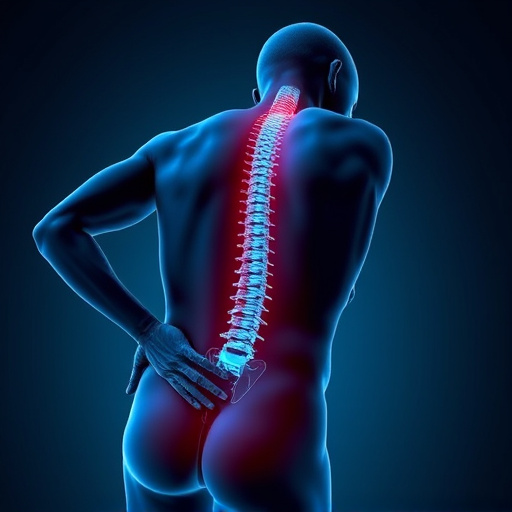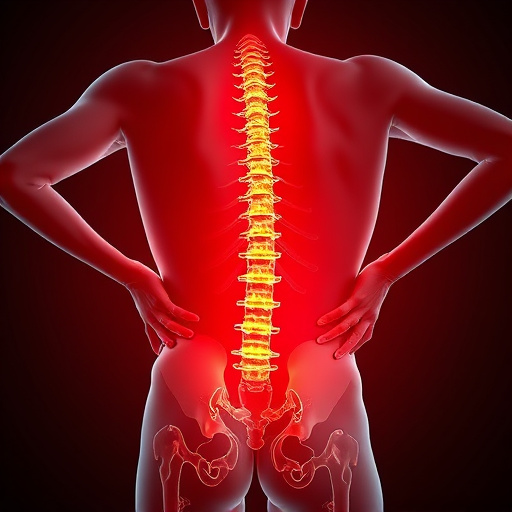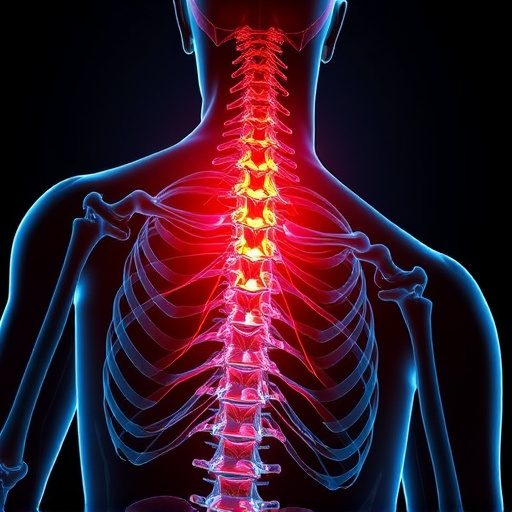Early recognition of car accident injuries is crucial for effective care. Immediate pain may manifest, but hidden trauma like whiplash can delay. Prompt medical attention, including spinal adjustments, is vital to prevent long-term issues like chronic pain and disability, ensuring optimal recovery through timely sciatica treatment and rehab services.
In the aftermath of a car accident, early diagnosis plays a pivotal role in effective car accident injury care. Recognizing subtle signs of trauma is crucial for immediate medical attention, which can significantly enhance recovery outcomes. This article delves into the critical aspects of identifying and addressing car accident injuries promptly. We explore the benefits of swift assessments, highlighting how they facilitate efficient treatment and improve long-term prospects for victims. Understanding these factors is essential for anyone involved in motor vehicle collisions, emphasizing the need for quick, thorough responses to ensure optimal recovery.
- Recognizing Early Signs of Car Accident Injuries
- Benefits of Prompt Medical Assessment After an Accident
- Impact of Delayed Treatment on Long-Term Recovery
Recognizing Early Signs of Car Accident Injuries

Recognizing the early signs of car accident injuries is crucial for effective car accident injury care. Many victims may experience immediate pain at the scene or soon after, such as headaches, neck stiffness, and backache. However, some injuries, particularly soft tissue damage like whiplash, might not manifest immediately. Symptoms could include dizziness, fatigue, and difficulty concentrating, which can easily be attributed to stress or other factors if not linked to a recent accident.
Prompt attention is vital as early intervention in car accident injury care can significantly impact recovery. For instance, a spinal adjustment or pinched nerve relief techniques may be more effective when applied shortly after an injury. Awareness of these subtle signs and acting upon them can prevent long-term complications and ensure victims receive the appropriate whiplash treatment or other necessary care.
Benefits of Prompt Medical Assessment After an Accident

After a car accident, seeking prompt medical assessment is paramount for effective car accident injury care. The initial hours and days following an incident are crucial in determining the severity of injuries and guiding appropriate treatment plans. Early evaluation by healthcare professionals enables them to identify both visible and hidden trauma. While some injuries might not manifest immediately, timely attention ensures a comprehensive understanding of the patient’s condition, preventing potential long-term complications.
Prompt medical assessments facilitate efficient delivery of tailored rehab services, including chiropractic care for back and neck pain, which are common in car accident injury cases. Effective sciatica treatment, for instance, often requires early intervention to manage acute pain and prevent chronic conditions. By acting swiftly, individuals can enhance their recovery trajectory, ensuring they receive the necessary support to regain mobility, alleviate pain, and resume normal activities as soon as possible.
Impact of Delayed Treatment on Long-Term Recovery

Delayed treatment after a car accident can significantly impact a patient’s long-term recovery and overall health. When injuries from a collision are left untreated or improperly managed initially, it can lead to chronic pain, reduced mobility, and even permanent disability. The human body is designed to heal, but this process requires prompt and adequate care. If treatment for conditions like whiplash, spinal injuries, or internal organ damage is postponed, the recovery window may close, making it harder for the body to regain full functionality.
For instance, sciatica treatment, which is often required for car accident victims experiencing leg pain, needs to be administered timely. Similarly, rehab services play a crucial role in restoring strength and flexibility after a sports injury or an accident-related strain. While every patient’s journey is unique, early intervention can prevent secondary complications, ensuring better outcomes in the long run, especially when it comes to managing chronic conditions that may arise from delayed car accident injury care.
Early diagnosis is a cornerstone of effective car accident injury care. By recognizing symptoms promptly and undergoing prompt medical assessments, individuals can significantly enhance their long-term recovery outcomes. Delayed treatment can impede healing and lead to chronic conditions, emphasizing the crucial need for swift action following a car accident. Prioritizing one’s health and well-being through timely care ensures a smoother road to recovery.














